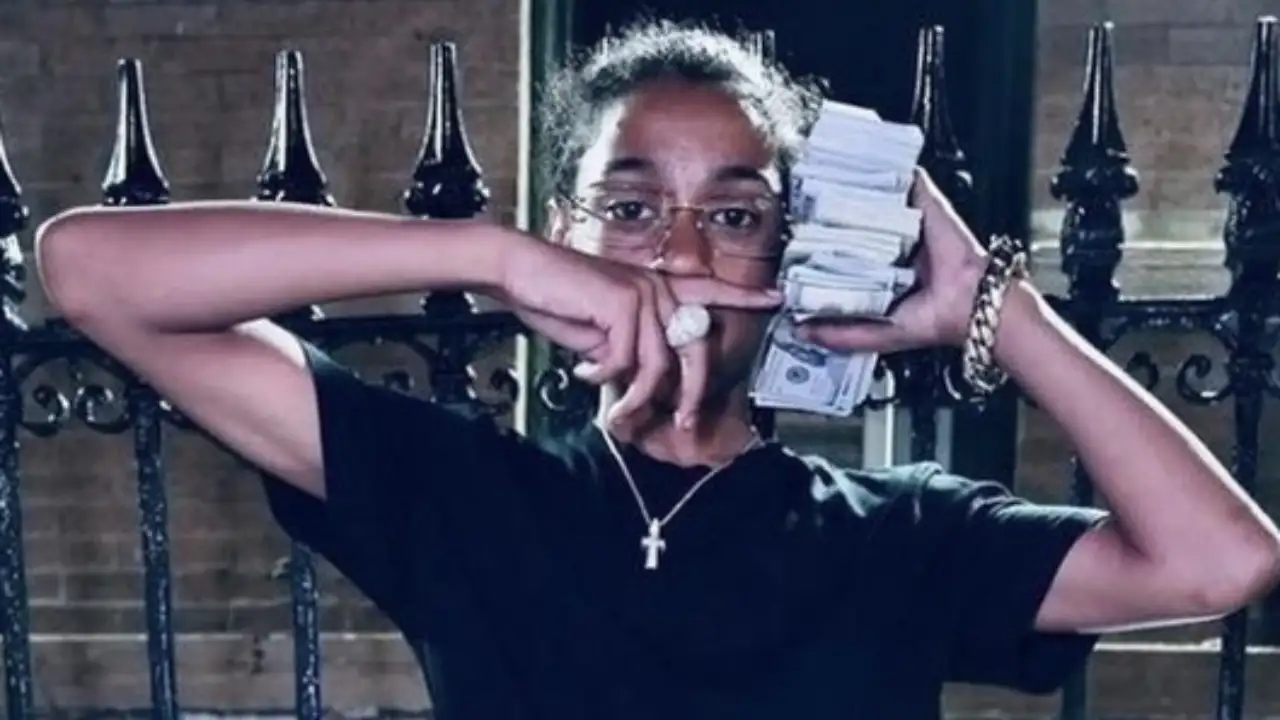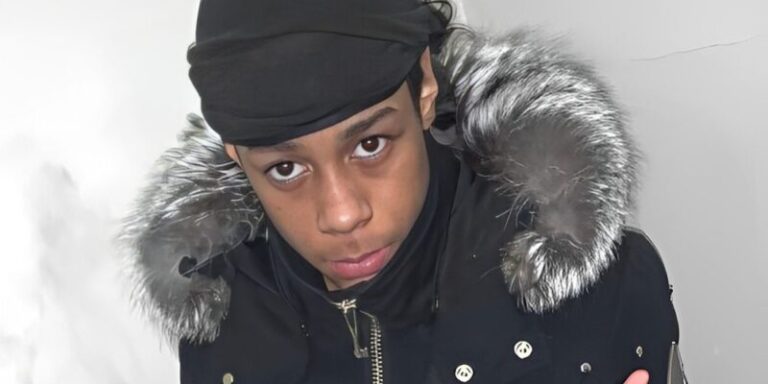The untimely demise of Notti Osama, a rising star in the drill music scene, has left fans and the music community in shock and mourning. This tragedy highlights young artists’ perils in their quest for fame and casts a spotlight on the broader societal issues plaguing our communities. In this article, we delve deep into the circumstances surrounding Notti Osama’s death, his impact on music, and the conversations about violence, youth, and art that his loss has ignited.
The Rise of Notti Osama
Notti Osama, born Ethan Reyes, was a young talent who quickly made a name for himself in the drill music scene. Drill music, characterized by its gritty lyrics and raw portrayal of urban life, has been both celebrated for its authenticity and criticized for its often violent themes. Despite the controversies surrounding the genre, Notti Osama’s music resonated with many, particularly the youth, who reflected their struggles and aspirations in his lyrics.
His journey was not just about music; it was a beacon of hope for many young individuals facing similar challenges. Notti Osama’s ability to articulate the complexities of street life and his undeniable musical talent set him apart in a crowded and competitive field.
The Circumstances of His Death
The details surrounding Notti Osama’s death are as tragic as they are alarming. The young artist was fatally stabbed in a conflict that reportedly stemmed from personal disputes not directly related to his music career. This incident, which occurred in the heart of New York City, underscores the pervasive issue of youth violence and the ease with which conflicts can escalate to deadly outcomes.
The aftermath of his death saw an outpouring of grief from fans, family, and fellow artists. Vigils were held, and social media was flooded with tributes, highlighting the deep connection Notti Osama had forged with his community. However, this tragedy also reignited debates on the role of drill music in promoting violence, with critics arguing that the genre glorifies a dangerous lifestyle.
Impact on Music and Community
Notti Osama’s death has had a profound impact on the drill music scene and the broader community. His loss is felt not just as a personal tragedy for his family and friends but as a cultural loss for a genre still fighting for its place in the mainstream. In the wake of his passing, there has been a renewed focus on the narratives that drill music portrays, with many advocating for a deeper understanding of the socio-economic conditions that inspire these stories.
Moreover, his death has sparked conversations about the need for mentorship and support systems for young artists navigating the dangerous intersection of fame, creativity, and the streets. The music industry, particularly those involved in genres like drill, is being called upon to play a more active role in protecting and guiding young talents.

Societal Reflections and the Way Forward
The tragedy of Notti Osama’s death is a stark reminder of the challenges facing our youth, particularly those from underprivileged backgrounds. It raises critical questions about the role of art in society and how communities can better support young people in channeling their experiences into creative expression without falling prey to the violence they often speak against.
There is also a broader conversation to be had about the responsibility of media and the entertainment industry in portraying these issues. The glorification of violence in music and other forms of entertainment has long been a contentious topic, and tragedies like Notti Osama’s death bring these concerns to the forefront.
In moving forward, it is essential to balance acknowledging the realities of street life and working towards a culture that elevates and educates rather than exploits. Initiatives aimed at providing young artists with the tools and knowledge to navigate their careers safely and successfully are crucial. Equally important is the need for community-based programs that address the root causes of youth violence and offer alternatives to the cycle of poverty and aggression.
The Legacy of Notti Osama
Notti Osama’s influence extends beyond his music; his legacy is a complex tapestry woven from his aspirations, his community’s hopes, and the stark realities of urban life. As a young artist, he represented the potential for change and the power of music to articulate the struggles and dreams of a generation. His lyrics, often raw and unfiltered, served as a voice for the voiceless, making his untimely death a loss of talent and a silencing of that voice. The legacy of Notti Osama challenges us to listen more closely to our youth’s stories and find ways to support and amplify their voices.
Addressing Youth Violence
The tragedy of Notti Osama’s death brings the issue of youth violence into sharp focus. This is not an isolated incident but a symptom of broader social and economic problems many communities face. Addressing youth violence requires a multifaceted approach that includes improving educational opportunities, providing access to mental health services, and creating safe spaces for young people to express themselves. It also demands a critical examination of the systemic inequalities that underpin much of this violence, urging policymakers, community leaders, and citizens alike to work towards a more just and equitable society.

The Role of Drill Music in Society
Drill music often comes under scrutiny in the aftermath of tragedies like the death of Notti Osama. Critics argue that it glorifies violence, while supporters see it as an authentic expression of the artist’s lived experiences. This debate overlooks the potential of drill music and similar genres to serve as a conduit for change. Drill music can raise awareness and foster empathy by giving voice to the hardships and realities of street life, creating a platform for dialogue and understanding. The challenge lies in navigating the fine line between expression and glorification, ensuring that the art remains a tool for insight rather than incitement.
Community and Healing
The loss of Notti Osama has shown the strength and resilience of communities in the face of tragedy. Vigils and tributes mourn the loss and celebrate the young artist’s life and impact. These acts of collective remembrance play a crucial role in the healing process, offering solace to those grieving and reinforcing the bonds that unite communities. Furthermore, they remind us of the collective responsibility to support and protect our youth, fostering an environment where talent and potential can flourish safely.
The Music Industry’s Responsibility
The music industry plays a pivotal role in the lives of young artists like Notti Osama. It is a platform for talent and a sphere of influence that can be nurtured or exploited. The industry must adopt a more proactive stance in mentoring young artists, providing them with the guidance and resources they need to navigate their careers. This includes educating them about the risks associated with fame, offering support for mental health, and encouraging positive, constructive themes in their music. By taking these steps, the industry can help safeguard the well-being of artists and contribute to cultivating a more positive and inclusive musical landscape.

Towards a Brighter Future
In the wake of Notti Osama’s tragic death, there is an urgent need to reflect on the paths forward. This involves not only addressing the immediate issues of violence and exploitation but also building a foundation for long-term change. Investing in education, arts, and community programs can empower young people, offering them alternatives to the streets and helping to break the cycle of violence. Encouraging positive forms of expression and creating opportunities for youth to engage with their communities can transform lives. The goal is to create a society where the talents and dreams of young individuals like Notti Osama are nurtured, not extinguished, by their environments.
Conclusion
The death of Notti Osama is a tragic event that has left a void in the hearts of many. Addressing the systemic issues contributing to such tragedies is a wake-up call. As we mourn the loss of young talent, let us also commit to supporting the youth and creating a society where art thrives as a force for positive change rather than a reflection of our failures. Notti Osama’s legacy, though cut tragically short, will continue to inspire and challenge us to build a better future for the next generation of artists.

